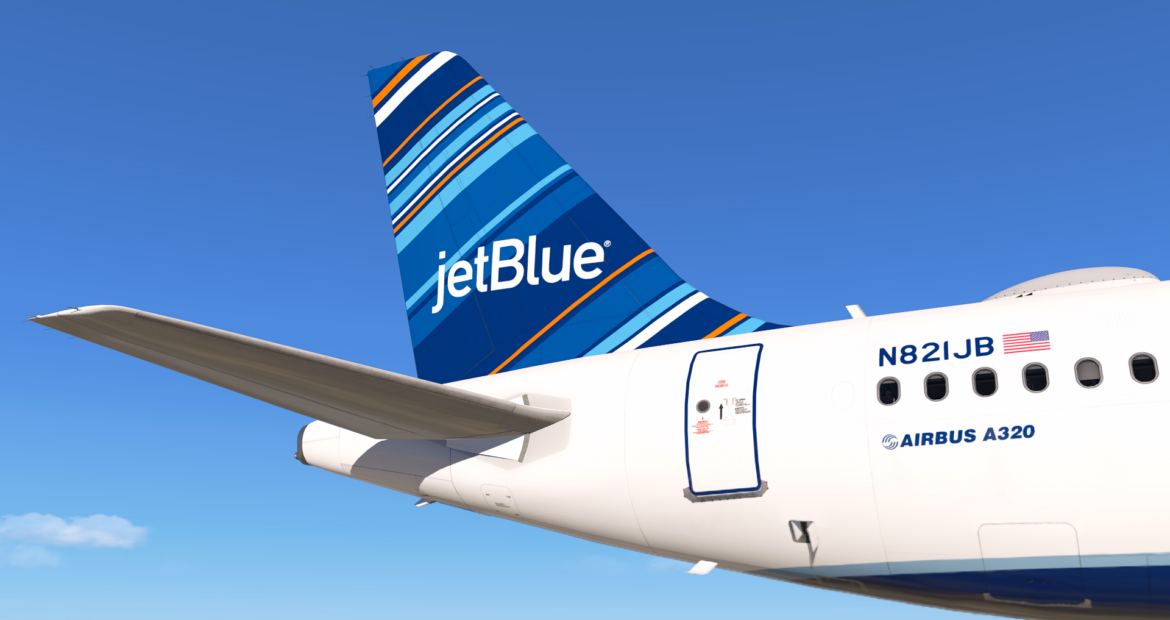Advertiser & Editorial Disclosure: The Bulkhead Seat earns an affiliate commission for anyone approved through the links below. This compensation may impact how and where links appear on this site. We work to provide the best publicly available offers to our readers. We frequently update them, but this site does not include all available offers. Opinions, reviews, analyses & recommendations are the author’s alone, and have not been reviewed, endorsed, or approved by any of these entities.
JetBlue Airways announced today that it will be the first airline in the world to adopt the low Earth orbit (LEO) satellite broadband known as Amazon’s Project Kuiper to power its onboard Wi-Fi service, Fly-Fi. The partnership represents a major step forward for inflight connectivity. It promises faster speeds, lower latency, and an even more seamless online experience for travelers. This will all be free of charge and continue JetBlue’s decade-long history of offering complimentary Wi-Fi.
JetBlue first introduced Fly-Fi in 2013. It became the first and only major US airline to provide free, high-speed Wi-Fi across its entire fleet. With the integration of Project Kuiper’s technology, JetBlue plans to upgrade select aircraft starting in 2027 and usher in a new era of gate-to-gate connectivity for passengers.
Project Kuiper’s system is built on a constellation of thousands of interconnected satellites orbiting close to Earth. These satellites use high-speed optical links to create a global mesh network in space. This is connected to a worldwide ground network of antennas, fiber infrastructure, and internet gateways. The result is high-speed, low-latency internet access capable of serving both passengers in the sky and remote communities on the ground. Over 100 satellites have already been deployed, with Amazon continuing to accelerate production and launches ahead of its initial rollout. The network’s LEO design provides faster data transmission compared to traditional geostationary (GEO) satellites, which JetBlue currently uses for Fly-Fi.
Project Kuiper-equipped aircraft will rely on LEO satellites. JetBlue is also exploring a multi-orbit solution that could combine the strengths of both LEO and GEO networks. This would offer an even more robust, resilient, and flexible Wi-Fi experience.

Initial installation of Project Kuiper technology will begin on select aircraft currently equipped with JetBlue’s original Fly-Fi hardware in 2027. A broader fleet rollout is to follow, with detailed timelines, aircraft lists, and route availability to be announced as the project progresses. Passengers can expect faster streaming and better productivity once the upgraded Fly-Fi becomes available.
By partnering with Amazon’s Project Kuiper, JetBlue is not only enhancing its passenger experience, but also positioning itself at the forefront of next-generation satellite connectivity. Learn more here.
Marty St. George, President of JetBlue, said:
Our agreement with Project Kuiper marks an exciting leap forward for us as the hands-down leader in onboard connectivity. Whether it’s binge-watching a favorite show, staying connected with loved ones, or wrapping up a work project, we’re always looking for ways to make our customers’ time in the air as connected and productive as they want it to be.”
Anthony’s Take: While most airlines are adopting Starlink (United Airlines is the largest to make that commitment), JetBlue is going with Amazon. I was unaware that Amazon had a competing offering until I read this announcement.
(Image Credits: JetBlue.)
User Generated Content Disclosure: The Bulkhead Seat encourages constructive discussions, comments, and questions. Responses are not provided by or commissioned by any bank advertisers. These responses have not been reviewed, approved, or endorsed by the bank advertiser. It is not the responsibility of the bank advertiser to respond to comments.
Advertiser & Editorial Disclosure: The Bulkhead Seat earns an affiliate commission for anyone approved through the links above This compensation may impact how and where links appear on this site. We work to provide the best publicly available offers to our readers. We frequently update them, but this site does not include all available offers. Opinions, reviews, analyses & recommendations are the author’s alone, and have not been reviewed, endorsed, or approved by any of these entities.
